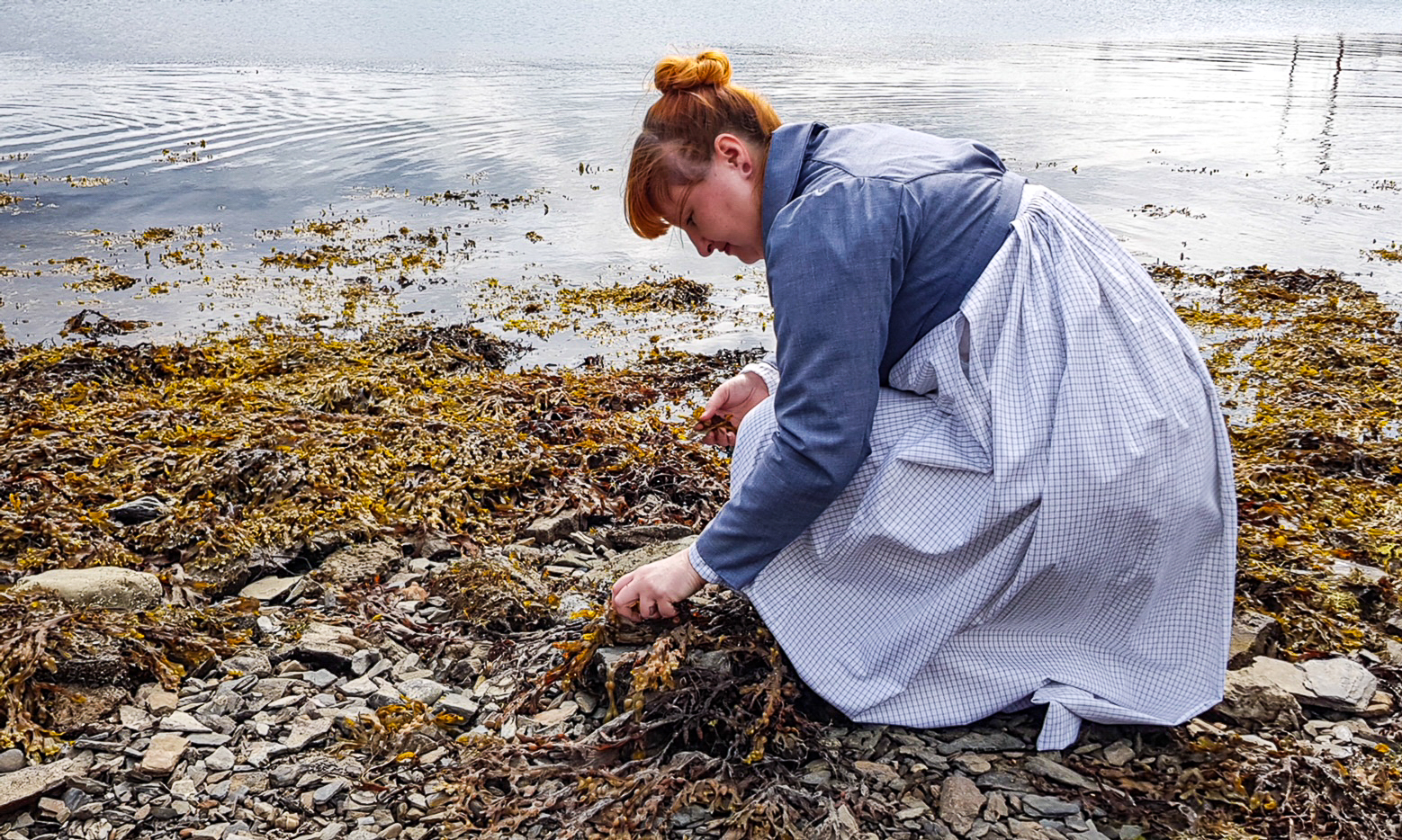ERI Ellen Hutchins Building
Overlooking the River Lee, and close to the UCC campus, the ERI Ellen Hutchins building has 3000 sq. metres of customised laboratories, pilot trial space, environmental control rooms, office space and two seminar rooms with the capacity to house 100 researchers. It has been built to the highest standards of contemporary sustainable design with many sustainable energy features such as solar panels, geothermal heat pumps and heat recovery systems.
The ERI Ellen Hutchins building is a purpose designed building for conducting research, and building management is arranged around research needs and to encourage collaboration and the building has a number of specialised laboratory facilities.
On the 21st Sept 2022 University College Cork’s Environmental Research Institute (ERI) Lee Road Building was renamed the Ellen Hutchins Building in honour of Ireland’s first female botanist Ellen Hutchins (1785-1815). Between 1805 and 1813, in Ballylickey on the shores of Bantry Bay, a young woman was applying herself to the study of a particularly difficult branch of botany - the non-flowering plants - seaweeds, lichens, mosses and liverworts. She also produced a list of all the plants she could find in her neighbourhood, which amounted to over one thousand plants. This would be the first proper account of West Cork’s Flora. In those eight years, aged twenty to twenty seven, Ellen Hutchins discovered at least twenty species that were new to science or new to Ireland, and made a significant contribution to the understanding of non-flowering plants, especially seaweeds. She also produced hundreds of exquisitely detailed watercolour drawings of seaweeds. Ellen’s achievements are all the more impressive when we consider that she suffered from periods of ill health throughout her life, and had extensive caring responsibilities at home. Ellen had returned to Bantry from school in Dublin to care for her ailing mother and a disabled brother. Ellen herself died young, just before her thirtieth birthday. Her legacy includes 10 plants which have been named after her, such as the moss Ulota hutchinsiae (Hutchins’ Pincushion), in recognition of the importance of her botanical studies. The ERI Ellen Hutchins Building now also contains the Ellen Hutchins Reading Room which holds archival material and artefacts such as a number of pressed modern seaweed specimens, framed silhouettes representing Ellen Hutchins and Dawson Turner, a number of books, several letters and a single drawing by Ellen. These materials were kindly donated by the Ellen Hutchins Festival - a non-profit organisation based in Bantry - exists to share the story of Ellen Hutchins; to promote botany and botanical art; and to celebrate the biodiversity and beauty of Bantry Bay, West Cork, Ireland. See www.ellenhutchins.com.

ERI Beaufort Building
The Beaufort Building houses the National Ocean Test Facility, incubation suites for industry, offices and associated laboratories and workshops for multi-disciplinary researchers.
90 in-house researchers, with profiles ranging from civil, electrical and mechanical engineering to all aspects of oceanography and marine governance, conduct applied and fundamental research.
Lir National Ocean Test Facility
Ireland’s National Ocean Test Facility, LIR-NOTF, is located at the ERI Beaufort Building in Cork, providing a suite of state-of-the-art test tanks and dedicated workshops. The facilities include a 2,600m2 tank hall which will house four different wave tanks, and a range of electrical test infrastructure, providing an ideal testing environment throughout all phases of device development. The facility’s deep water research wave basin and wave flume have the unique capability of generating waves up to 1m height to facilitate the testing of model wave energy devices and other marine structures in different wave conditions, including extreme conditions, such as those encountered off the west coast of Ireland. For further information please visit http://www.lir-notf.com/
Aquatic Services Unit
The Aquatic Services Unit (ASU) within the Environmental Research Institute undertakes environmental consultancy work and water analysis. The Unit has a proven track record in laboratory analysis, environmental monitoring and environmental impact assessment specialising in projects dealing with the aquatic environment, in marine and transition waters, and its investigations also extend to the terrestrial sphere. Water quality impact studies and analysis in freshwater and marine waters are the core specialisations of the ASU.
The unit has developed a well-resourced, experienced and flexible field sampling capability, enabling prompt deployment anywhere in Ireland to collect water, sediment, soil, biological and other environmental samples.
The analytical laboratory operates under a system of Good Laboratory Practice and has participated in an international Laboratory Proficiency Scheme (Aquacheck) since 1995. The unit has also developed close working links with a number of Irish and overseas approved laboratories for specialist analyses. For more information please visit http://www.ucc.ie/en/asu
Bioenergy and Biofuels Laboratory
The Bioenergy and Biofuels research group operates a reactor lab for anaerobic digestion experiments and a chemical lab for analyses of biomass feedstock characteristics and process parameters. The group focus on renewable gaseous biofuel production (biohydrogen and biomethane) from 2nd generation biofuel substrates such as wastes, agricultural residues and lignocellulosic energy crops, and 3rd generation biofuel substrates such as macro-algae (seaweed) and micro-algae.
Research covers biological and thermochemical bioenergy pathways. The group investigates a range of digestion applications at lab scale including for innovative technologies such as Power to Gas, demand driven biogas and novel biogas upgrading technologies.
Centre for Research into Atmospheric Chemistry
The research activity at the Centre for Research into Atmospheric Chemistry (CRAC) is wide-ranging and encompasses laboratory, field and modelling studies. Three main areas of investigation are undertaken as follows:
-
Laboratory simulations of homogeneous and heterogeneous chemistry relevant to the atmosphere.
-
Linking urban field measurements of particulate matter (PM) and bioaerosols to their chemical analysis and effects on health and climate change.
-
Development of new instrumental approaches for atmospheric analysis.
CRAC labs are sited in the both Basement (B1) of the Kane Building UCC and also on the top-floor of the ERI. For further information please visit https://www.ucc.ie/en/crac/